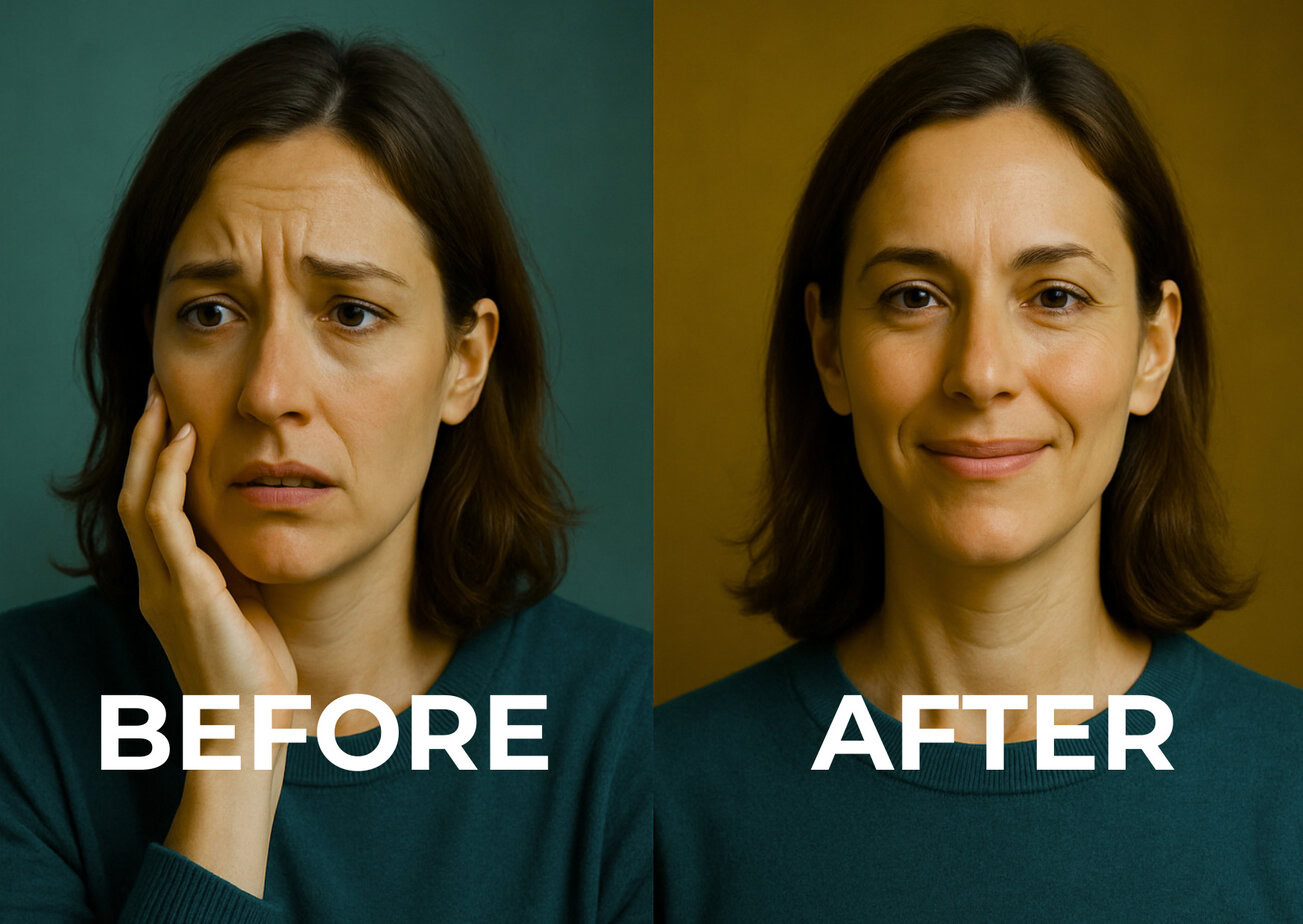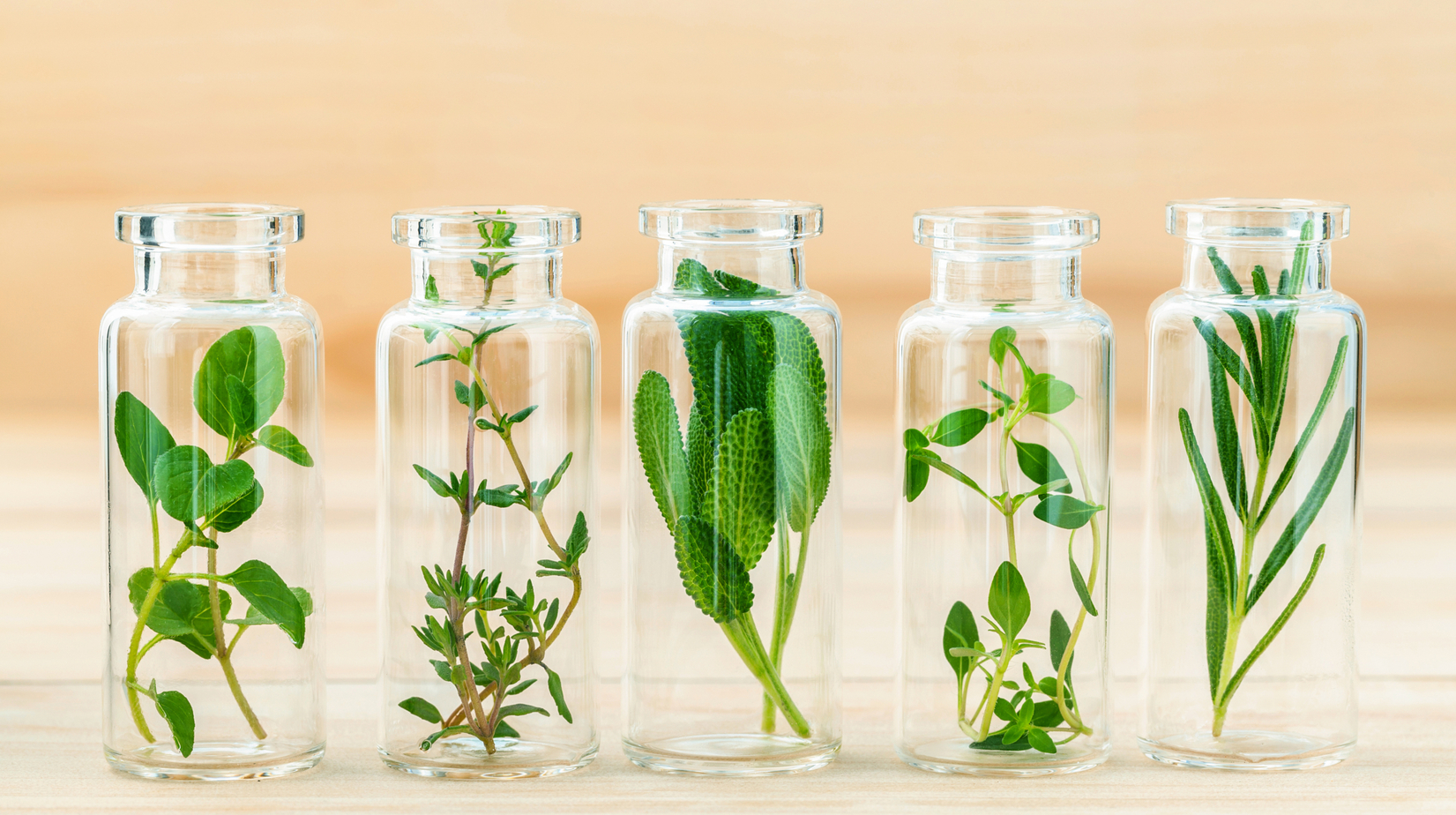The overwhelming worry. The incessant thoughts. Threatening scenarios racing through your head.
It can feel like too much to take in. The feelings and thoughts start spinning out of control. You feel on edge, restless, and emotionally drained.
If this sounds familiar, you’re not alone. According to the World Health Organization, 1 in every 13 people globally suffers from anxiety. In the U.S. alone, more than 40 million people are affected.
Is Anxiety Always a Problem?
It’s normal, and sometimes helpful, to feel anxious. Before an exam, a big decision, or during a major life change, some level of anxiety can sharpen focus and keep us alert. But today, anxiety has become a constant for many. And increasingly, it crosses into the territory of disorder.
Why Do You Have Anxiety?
Scientific research points to a variety of possible causes, sometimes distinct, but often intertwined:
-
Environmental toxicity – What are you regularly exposed to?1, 2
-
Food and nutrition – How does your diet support or stress your system? 3, 4
-
Mindset and perception – How do you process and interpret your experiences?5, 6
-
Unresolved trauma – What events or emotional wounds remain unhealed?7
-
Genetic predisposition – Your inherited tendencies (in homeopathy, your miasm)8
For some, one of these factors stands out. For others, anxiety arises from a layered combination.
In Classical Homeopathy, each of these aspects is explored and integrated into a complete picture of the person, not just the diagnosis.
The Body Doesn’t Lie
Anxiety isn’t “just in your head.” It manifests physically. Headaches, stomach aches, fatigue, sleep disturbances, these may all be the body’s way of expressing emotional strain.
Even when anxious thoughts aren’t present, the body may still be reacting.
The First Step Is Understanding
To address something effectively, we need clarity. That begins with understanding how anxiety shows up for you.
The 4 Main Types of Anxiety
In psychological terms, anxiety tends to fall into several categories:
-
Generalized Anxiety Disorder (GAD): Ongoing, excessive worry about everyday things—often with fatigue, restlessness, or difficulty concentrating.
-
Social Anxiety: Fear of being judged, criticized, or rejected. Often makes social interaction feel overwhelming.
-
Panic Disorder: Sudden episodes of intense fear, often with sweating, chest tightness, shortness of breath, or racing heartbeat.
-
Specific Phobias: Irrational fear of certain objects, situations, or activities (e.g., flying, heights, spiders, needles).
Note: OCD and PTSD are no longer classified as anxiety disorders, but anxiety remains a central feature in both.
But Do These Labels Really Help?
You might feel like:
-
“This sort of fits… but not completely.”
-
“What about my other symptoms, fatigue, headaches, sleeplessness, if they’re connected to my anxiety, why are they treated separately?”
-
“What’s really causing my anxiety? If we don’t know, how can we heal it?”
These are important questions. In many conventional approaches, it’s the diagnosis that’s treated, not the individual.
Homeopathy does the opposite.
What Does Homeopathy Actually Address?
Classical Homeopathy treats anxiety as an expression of deeper patterns. It doesn’t separate mental from physical, or emotional from behavioral.
Instead, it considers:
-
Your emotional state and temperament
-
How your body physically expresses stress
-
Patterns in how you react to situations
-
Life events, trauma, and ongoing stressors
-
Inherited susceptibilities
Everything is relevant. Because everything is connected.
If you’re unfamiliar with how homeopathy works, including ideas like “like cures like” and potentization, this article explains the core principles.
What Does the Research Say?
While some studies remain inconclusive, others suggest promising outcomes:
In a study of patients with anxiety and depression who hadn’t responded to conventional treatment, 50% improved with homeopathy using standardized tests.
(Davidson et al.) “Homeopathic treatment of depression and anxiety.”
Patients over age 65 treated by homeopathic general practitioners were more likely to improve after 12 months than those receiving standard care.
(Danno et al.) “Management of Anxiety and Depressive Disorders …”
A large-scale French study found that patients under homeopathic care used fewer psychotropic medications and showed greater clinical improvement than those in conventional treatment.
(Grimaldi-Bensouda et al.) “Homeopathic medical practice for anxiety and depression in primary care: the EPI3 cohort study”
For more on the science behind homeopathy, see this page.
How Remedies Reflect You
There are hundreds of remedies used to support anxiety. Each one represents a distinct expression of how a person experiences fear, stress, and insecurity.
Here are a few:
| Remedy | Profile |
|---|---|
| Arsenicum Album | Restless anxiety with exhaustion, worse at night. Mental: Perfectionistic, controlling, fears death, illness, or being alone. Restless pacing, needs reassurance. Physical: Weakness after slight exertion, chilliness, burning pains relieved by heat. Etiology: Chronic illness, financial or health insecurity. |
| Kali Arsenicosum | Severe health anxiety, especially about heart or terminal disease. Mental: Obsessive about symptoms, feels doomed, restless but physically weak. Physical: Palpitations, shortness of breath, worse at night; skin burning or itching. Etiology: Chronic heart or respiratory disease, prolonged fear about health, panic triggered by palpitations. |
| Aconitum Napellus | Sudden, intense panic with fear of death. Mental: Acute anxiety after shock, fright, or accident. Restless, predicts time of death, cannot sit still. Physical: Pounding heart, flushed face, dry mouth, tingling, trembling. Etiology: Sudden fright, traumatic events. |
| Calcarea Carbonica | Anxiety from overwork, responsibility, or health fears. Mental: Overwhelmed, fears collapse, worries about family. Physical: Cold, clammy, sweats on head, sluggish metabolism, easily fatigued. Etiology: Chronic stress, genetic predisposition, slow recovery after illness. |
| Cannabis Indica | Spacey, time distortion, anxiety with fear of losing control. Mental: Rapid thoughts, paranoia, sensation of body or mind separating, laughter alternating with fear. Physical: Dry mouth, red eyes, palpitations, feeling of floating. Etiology: Drug effects, sleep deprivation, spiritual overwhelm, sensory overload. |
| Digitalis Purpurea | Anxiety from heart weakness with slow, irregular pulse. Mental: Fear of heart stopping if they move; anxious, focused on heartbeat. Physical: Palpitations, faintness, nausea, slow weak pulse, bluish lips. Etiology: Cardiac disease, grief, shock to the heart, post-illness weakness. |
Each remedy addresses not just symptoms, but the person behind them, including their physical tendencies, triggers, and patterns of stress.
Can You Choose a Remedy Yourself?
In chronic conditions like anxiety, self-prescribing is rarely effective.
Matching a remedy to the full picture, emotions, symptoms, triggers, constitution, requires depth and training. Without guidance, it’s easy to miss the mark or suppress the wrong layer of experience.
For a guide on when homeopathic self-care is appropriate, read this article on acute vs. chronic prescribing.
What Does Healing Feel Like?
The goal of homeopathy isn’t to suppress your anxiety, it’s to understand what it’s signaling and help your system rebalance.
Many describe it like this:
“I finally understood what was really bothering me.”
“I let go of something I didn’t even realize I was holding onto.”
“I feel more grounded. More myself.”
Not every case changes overnight. But, the process leads to greater self-awareness, emotional clarity, healing and increased resilience.
To understand what to expect during the homeopathic healing process, this article may be helpful.
Final Thoughts
Anxiety can feel isolating, but it often carries important information. Homeopathy offers a path that doesn’t just manage it, it seeks to understand and resolve the underlying patterns.
By addressing the whole person, not just the diagnosis, it can support a return to balance and vitality.
Continue reading: “What Can Homeopathy Help With? Exploring the Six Dimensions of Healing”
.



